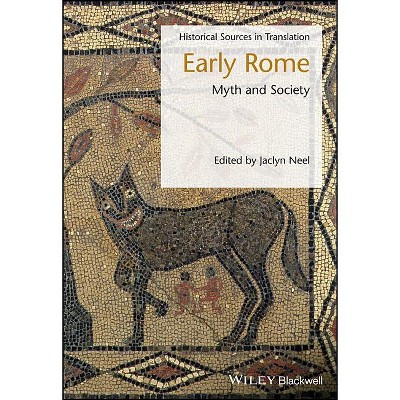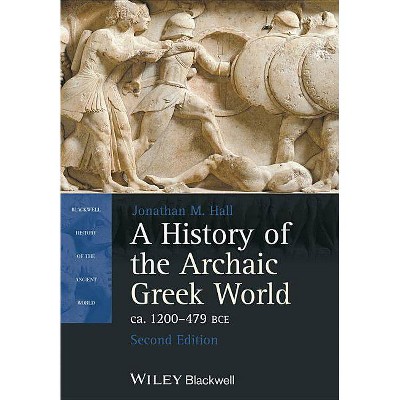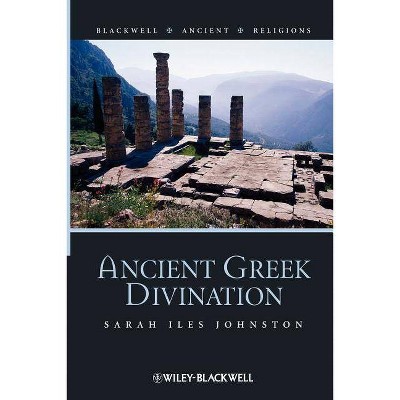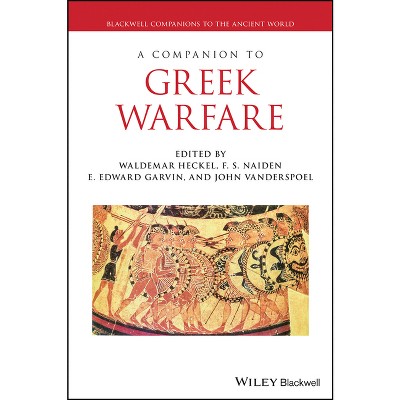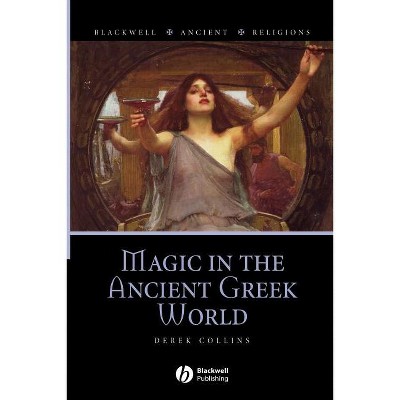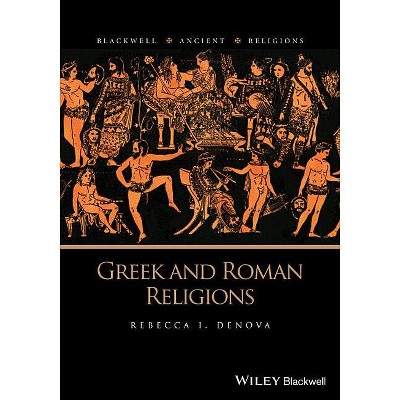Greek and Roman Slaveries - (Blackwell Sourcebooks in Ancient History) by Eftychia Bathrellou & Kostas Vlassopoulos (Paperback)

About this item
Highlights
- Greek and Roman Slaveries Slavery was foundational to Greek and Roman societies, affecting nearly all of their economic, social, political, and cultural practices.
- About the Author: Eftychia Bathrellou is Researcher at the Centre for Classical Studies at the University of Lisbon (CEC-FLUL).
- 400 Pages
- History, Ancient
- Series Name: Blackwell Sourcebooks in Ancient History
Description
About the Book
"Slavery was a ubiquitous and fundamental phenomenon of Greek and Roman societies. Slaves constituted a substantial proportion of the population of ancient communities; they worked in practically all sectors of ancient economies, as agricultural workers, artisans, traders, servants, performers, managers and even civil servants; their exploitation allowed their masters to live as they wished; the domination of slaves shaped the formation of households, relations of gender, constructions of identity and cultural practices; slavery was used as a powerful tool to think about hierarchy, power, religion, and the good life. There is hardly any aspect of ancient history, literature or archaeology that does not involve, in one way or another, slaves and slavery. Consequently, a sourcebook on ancient slavery has immense value for those interested in the study of Classics, ancient history and archaeology. The volume at hand is not the first slavery sourcebook. There exist two older sourcebooks on ancient slavery; one in English, by Thomas Wiedemann, which covers both Greek and Roman slavery, and one in German, by Werner Eck and Johannes Heinrichs, which focuses on the Roman imperial period. Both are still valuable works, and we have tried as far as possible to avoid duplicating their contributions and their selection of texts. Instead, our sourcebook tries to present different texts and new topics, and uses an alternative, interactive, format. We have tried to design a sourcebook which is both user-friendly and at the same time an introduction to the sources and scholarship on Greek and Roman slaveries. Each chapter is preceded by an introduction, which lays out the wider issues examined in the chapter. Each source is accompanied by a small introduction, setting the context and providing necessary information, references to relevant scholarly literature, and a series of questions, which aim to help readers to analyse and debate each source. In order to help the readers to focus on how a source illuminates the issues under examination, we have limited the information we offer to the absolutely necessary. We have tried to ensure that each source and question can be studied productively solely on the basis of the evidence provided in the sourcebook. At the same time, by offering bibliographical suggestions we have tried to make each source a window to the wider scholarship and an opportunity to explore further the issues that each source raises"--Book Synopsis
Greek and Roman Slaveries
Slavery was foundational to Greek and Roman societies, affecting nearly all of their economic, social, political, and cultural practices. Greek and Roman Slaveries offers a rich collection of literary, epigraphic, papyrological, and archaeological sources, including many unfamiliar ones. This sourcebook ranges chronologically from the archaic period to late antiquity, covering the whole of the Mediterranean, the Near East, and temperate Europe.
Readers will find an interactive and user-friendly engagement with past scholarship and new research agendas that focuses particularly on the agency of ancient slaves, the processes in which slavery was inscribed, the changing history of slavery in antiquity, and the comparative study of ancient slaveries.
Perfect for undergraduate and graduate students taking courses on ancient slavery, as well as courses on slavery more generally, this sourcebook's questions, cross-references, and bibliographies encourage an analytical and interactive approach to the various economic, social, and political processes and contexts in which slavery was employed while acknowledging the agency of enslaved persons.
From the Back Cover
Slavery was foundational to Greek and Roman societies, affecting nearly all of their economic, social, political, and cultural practices. Greek and Roman Slaveries offers a rich collection of literary, epigraphic, papyrological, and archaeological sources, including many unfamiliar ones. This sourcebook ranges chronologically from the archaic period to late antiquity, covering the whole of the Mediterranean, the Near East, and temperate Europe.
Readers will find an interactive and user-friendly engagement with past scholarship and new research agendas that focuses particularly on the agency of ancient slaves, the processes in which slavery was inscribed, the changing history of slavery in antiquity, and the comparative study of ancient slaveries.
Perfect for undergraduate and graduate students taking courses on ancient slavery, as well as courses on slavery more generally, this sourcebook's questions, cross-references, and bibliographies encourage an analytical and interactive approach to the various economic, social, and political processes and contexts in which slavery was employed while acknowledging the agency of enslaved persons.
Review Quotes
"The [volume] is ambitious and wide-ranging and often surprising... This collation is a significant work of scholarship in itself... a provoking (in a good sense) collection and a valuable resource. I will use it and make sure that my students can access it." (Bryn Mawr Classical Review)
About the Author
Eftychia Bathrellou is Researcher at the Centre for Classical Studies at the University of Lisbon (CEC-FLUL). She is the author of articles on Greek comedy, particularly the Athenian poet Menander, and on representations of slaves and slavery in Greek drama.
Kostas Vlassopoulos is Associate Professor of Ancient History at the University of Crete. His research is focused on the study of ancient slavery, ancient globalization, intercultural relations, political thought, historiography, and comparative history.






